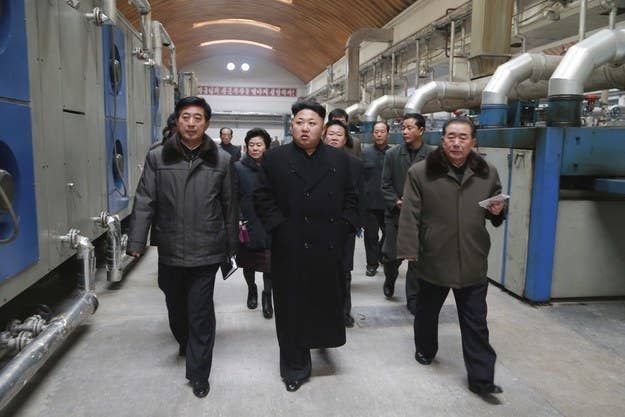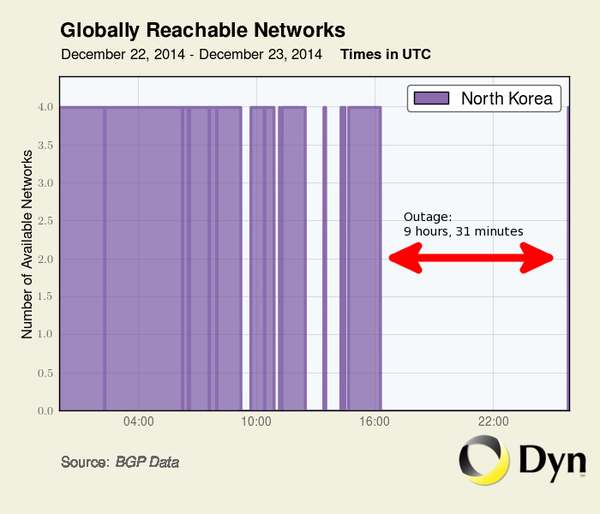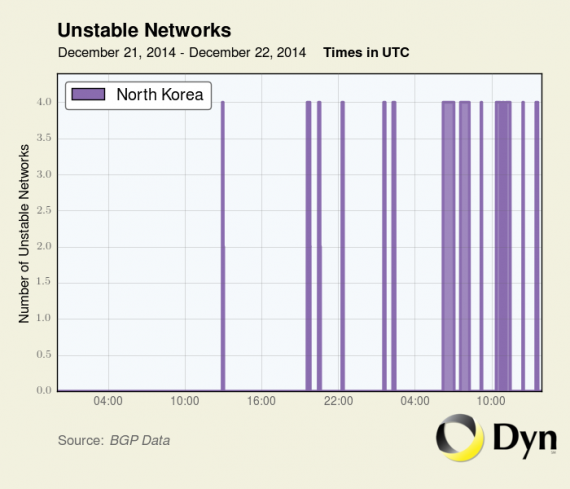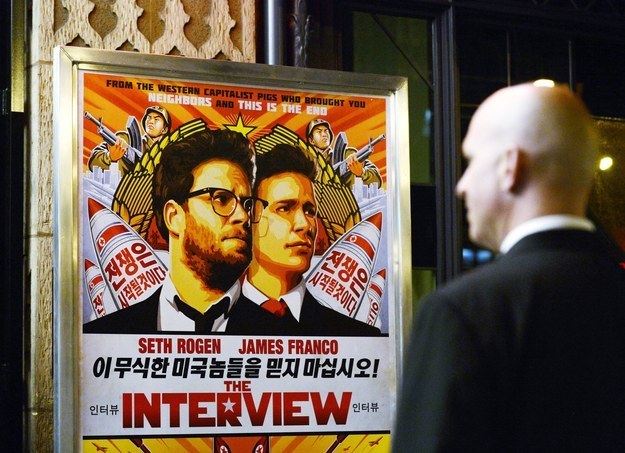Updated — Dec. 22, 9:45 p.m.

The internet connectivity between North Korea and the rest of the world was restored Monday after collapsing for more than nine hours in what was widely believed to be a massive cyberattack.
The country's internet had been spotty for the 24 hours leading up to the outage, the blog North Korea Tech reported. But then on Monday afternoon, the country's internet, which is already very limited with only 5,500 websites, went out completely.
The internet connection in North Korea does suffer from occasional failures, but the consistency of this outage led the director of internet analysis at the cybersecurity firm Dyn Research, Doug Madory, to believe it is "some sort of attack."
The outage lasted nine hours, 31 minutes, according to the firm.

"Their networks are under duress," Madory told the New York Times. "This is consistent with a DDoS attack on their routers," he said, referring to a distributed denial of service attack, in which attackers flood a network with traffic until it collapses under the load.
"I haven't seen such a steady beat of routing instability and outages in KP before," said Madory. "Usually there are isolated blips, not continuous connectivity problems. I wouldn't be surprised if they are absorbing some sort of attack presently."
Although the failure might have been caused by maintenance problems, Mr. Madory and others said that such problems most likely would not have caused such a prolonged, widespread loss. CloudFlare, a San Francisco-based internet company on Monday confirmed to the Times that North Korea's internet access was completely gone, stating that the number of withdrawn connections showed that "the North Korean network has gone away."

The suspected attack comes just days after President Obama said that the United States would offer a "proportional response" to North Korea's hack against Sony.
One "proportional response" could be a "hack back," in which the United States would attack the hackers' computers in an attempt to destroy North Korea's digital infrastructure or compromise the machines that were responsible for the hacking, Tom Kellermann, a former member of the presidential commission on cybersecurity, told the New York Times.
China could also potentially have a hand in North Korea's internet outage. After President Obama vowed to make North Korea pay for the hack on Sony and warned against future acts of "cybervandalism," the U.S. reached out to China to ask for help blocking North Korea's attack, the Times reported.
As of Saturday, the Chinese government had not responded to the request of the Obama administration. China's cooperation would be critical, since North Korea's internet access is wired through China, giving the nation control over North Korea's ability to digitally access the outside world.
On Saturday, Kellermann told the Times that he predicted a "campaign of information warfare," in which the U.S. hacks into North Korean media systems to spread information forbidden from North Korea's intensely monitored media bubble.

H/T Vox
